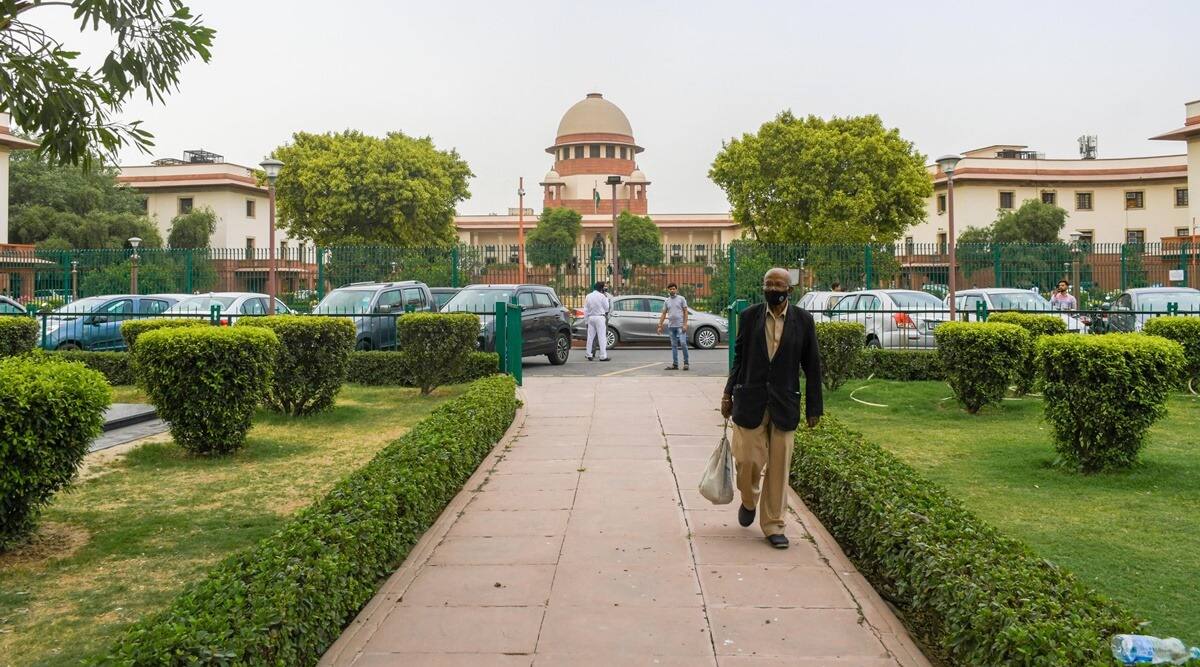Supreme Court to deliver verdict on validity of electoral bonds scheme today
The scheme was announced in the 2017 Union Budget speech when Late Arun Jaitley was the Finance Minister. Electoral bonds are interest-free bearer instruments that are essentially used to donate money anonymously to political parties.
 According to the notification, electoral bonds shall be encashed by an eligible political party only through an account with an authorised bank.
According to the notification, electoral bonds shall be encashed by an eligible political party only through an account with an authorised bank.The Supreme Court will pronounce on Thursday its judgment on a bunch of four petitions challenging the constitutional validity of the electoral bonds scheme, including those filed by Congress leader Jaya Thakur, the CPI(M) and the NGO Association for Democratic Reforms.
The scheme was announced in the 2017 Union Budget speech when Late Arun Jaitley was the Finance Minister. Electoral bonds are interest-free bearer instruments that are essentially used to donate money anonymously to political parties.
This is also why this scheme has been challenged in court by transparency activists since voters can no longer know which individual, company, or organisation has funded which party and to what extent. Earlier parties had to disclose details of all donors who have contributed more than Rs 20,000. The Centre, however, has pitched bonds as an alternative to cash donations and as a way to increase transparency and accountability in political funding.
Besides challenging the constitutionality of the electoral bonds scheme, the petitioners have asked the court to declare all political parties as public offices to bring them under the ambit of the Right to Information Act and compel political parties to disclose their income and expenditure.
A five-judge bench of Chief Justice of India D Y Chandrachud, and Justices Sanjeev Khanna, B R Gavai, J B Pardiwala and Manoj Misra had reserved its judgment in the matter on November 2 last year.
 In the period between 2017-2018 and 2021-2022, electoral bonds worth Rs 9,208.23 crore were sold.
In the period between 2017-2018 and 2021-2022, electoral bonds worth Rs 9,208.23 crore were sold.
In the six years since the first petition challenging the electoral bonds scheme was filed, six Chief Justices of India took office and twice- in 2019 and in 2021- the Supreme Court refused to stay the legislation. However, it only took six sessions- spread across three days for the Court to conclude the hearing and reserve verdict.
Reserving its decision on November 2, the court had said that it is “slightly difficult to accept” the government’s contention that voters do not have the right to know the source of funding of political parties and suggested that a better poll bond scheme can be formulated taking care of the “serious deficiencies” in the present scheme.
The bonds are sold in multiples of Rs 1,000, Rs 10,000, Rs 1 lakh, Rs 10 lakh, and Rs 1 crore, and State Bank of India is the only bank authorised to sell them. Donors can buy and subsequently donate bonds to a political party, which can encash the bonds through its verified account within 15 days. There is no limit on the number of bonds an individual or company can purchase. If a party hasn’t encashed any bonds within 15 days, SBI deposits these into the Prime Minister’s Relief Fund.
Since the electoral bonds scheme was introduced, the total amount collected by parties through the poll bond scheme, in 29 phases since 2018, has now gone up to over 15,922.42 crore. More than half, or 57%, of the funds extended through bonds have gone to the BJP. The party, as per its declarations to the Election Commission, received Rs 5,271.97 crore via bonds between 2017-2022. The Congress was a distant second at Rs 952.29 crore.
Regional parties in power in states are also big recipients of electoral bonds funds, with the Trinamool Congress that has been in government in West Bengal since 2011 declaring contributions worth Rs 767.88 crore over the years, putting it third after the BJP and Congress.







